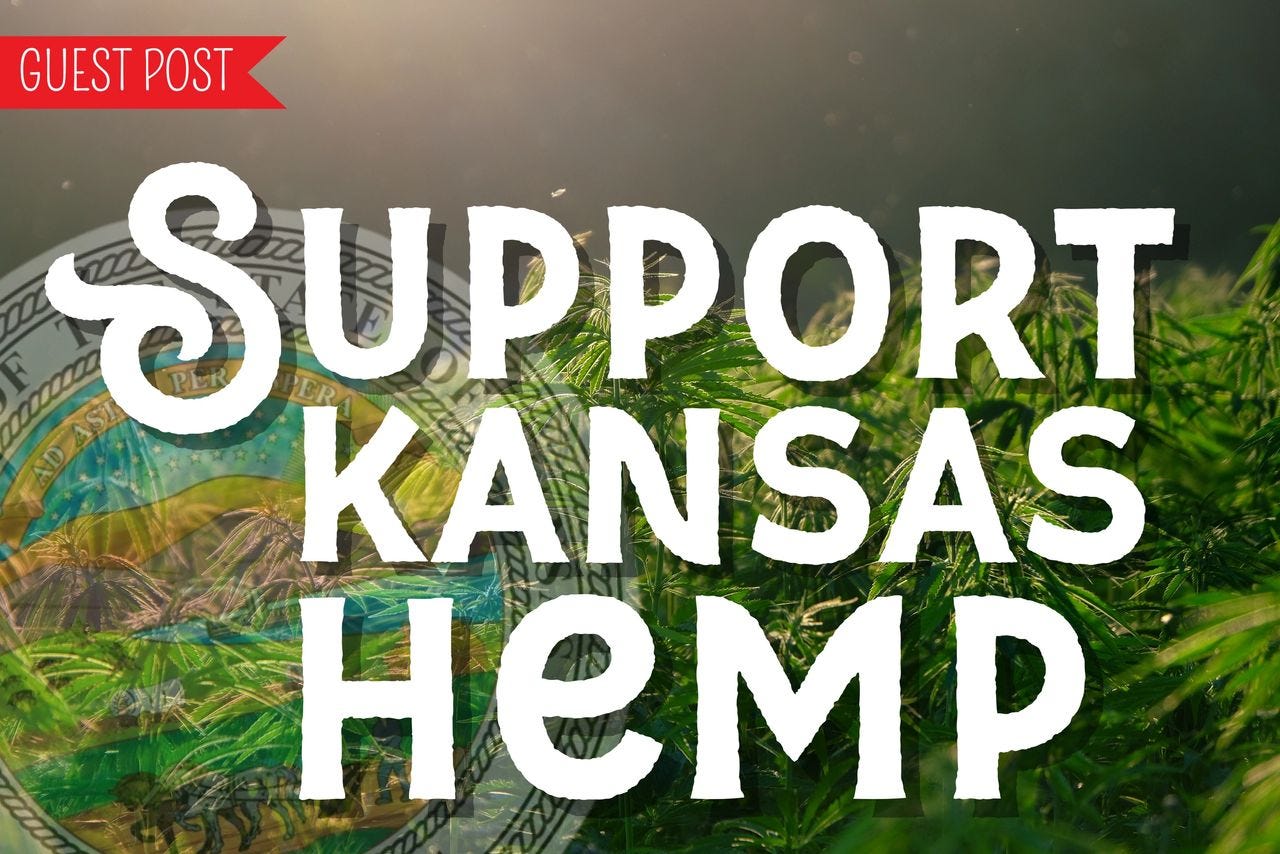The following guest blog post was written by Sarah Stephens Selmon, Founder of Tallgrass Hemp & Cannabis and President of the Kansas Hemp Consortium.

Bringing Hemp Home
Maybe like me, you remember hazy conversations in high school or college where you first heard how hemp could save the world, and how it was outlawed by big oil and other industries who stood to gain from its extinction. I’ve been wondering ever since how in the world this generous plant became illegal. The answers are not particularly reassuring.
Along this quest, as soon as it was a legally available option, I started growing hemp as a licensed participant in the Kansas Department of Agriculture’s Industrial Hemp Research Program. Made possible by the 2014 Farm Bill, the research program first launched in Kansas for the 2019 growing season. I was a licensed hemp researcher for the first two years of the program. The 2018 farm bill, which authorized commercial production, no longer requires research for participation. I've been granted a commercial license for the 2021 growing season, my third as a hemp producer. Chasing the CBD rainbow like 95% of my peers, I grew CBD dominant strains in an indoor, hydroponic system as a researcher in 2019. In 2020, I grew CBD dominant strains outside in a hoop house at Firefly Farm. Now with the commercial license, I am working with a group of farmers in the KS Hemp Consortium, including Firefly Farm, to grow nearly 100 acres of grain and fiber hemp varieties. As a third year producer, I see the tide turning toward industrial hemp in food and manufacturing for very good reasons.
Hero Hemp
How we got here is a story of misinformation, misallocation of resources and mass incarceration of minorities. Most of us grew up hearing how hemp was the answer to many of our problems but unexplainably out of reach in the legal market. Still today, the legislative system disenfranchises too many Americans around this plant, defining them as criminals when they are not. These antiquated policies have devastated our environment instead of investing in sustainability.
From an unjust past to a bright future, hemp is here to stay. It is up to all of us to make it an industry accessible to farmers and small businesses. You can support sustainability by buying hemp products. Add hemp to your diet and support family farms with your purchases. Make space for hemp in your home. Look for hemp products in the grocery store, in health and beauty items and on the shelves of the supplement section.
3rd Annual Kansas Hemp Conference
Gratefully, hemp is back and opportunities abound for you to get on board. Virtually attend the 3rd Annual Industrial Hemp Conference on March 30th from 9 A.M. to noon. This year’s focus is hemp in manufacturing. Speakers include experts on hemp in plastics, food and composites. Hosted by the Kansas Hemp Consortium and WSU’s Small Business Development Center, this is the perfect opportunity to learn more about niche opportunities and scaled production of the oldest, and newest, crop in Kansas.
Mass market appeal, stringent regulations, logistical hassles and manufacturing supply chain details leave much to be determined in the hemp industry. But Kansas farmers are on the job and innovative Kansas business people are waking up to the opportunity. Being well informed allows you to embrace the risks, get comfortable with unfolding change and muster up the tenacity this industry requires. Find more information and register for the 3rd Annual Kansas Hemp Conference here.
Related Links:
🔗 Tallgrass Hemp & Cannabis LLC Website
🔗 Tallgrass Hemp & Cannabis Instagram
More About this Guest Blogger:
Sarah leads with an entrepreneur's heart. Growing industrial hemp in Kansas' first legal crop, she believes in pushing boundaries and providing value. A frequent speaker at hemp industry events, Sarah collaborates with other pioneers and advocates for changes to cannabis laws in Kansas--one of only a few states where residents have no legal access to cannabis. Sarah shares her experiences regarding legal and regulatory snares along the way and her perspective as a female grower in an agricultural state.






